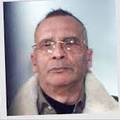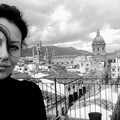The Discreet Charm of Democracy
Translated by Stacey Bancone
I’ll never forget that morning eight years ago when I learned that Barack Obama won. That historical moment. It was in that year that I had the fortune to live with an American girl. Stacey and I, two young women along with two other young people, we lived in the same apartment in Florence. After a day or two, from roommates we became friends, and we still are despite the considerable geographical distance that separates us. An ocean, practically.
I remember that historical day of the 2008 elections. I entered my friend’s room to ask if she wanted a coffee or something stupid like that. I didn’t immediately understand that something important was happening. I entered and I saw her in front of the computer, connected, all agitated, giving confused responses to my questions, with rings under her eyes, surely from the sleeplessness after the long night of the elections, while her eyes glistened. She was almost in a trance. She had understood the moment; I hadn’t yet.
I sat down next to her and we began to listen together to Obama’s now-famous victory speech. In that scene, there was something very symbolic. Me- the girl from the East- skeptic, incredulous, always with a look of wariness, or even better, cynicism, with regard to any victory of someone within the political realm. Surely it’s an approach that is owed to that historical-cultural heritage that only an Eastern European country could leave to its citizens with its crazy, almost incomprehensible complexity. And her- the girl from the States- the “amerihana” as the Florentines would say, enthusiastic, confident, one that believed in values, in progress, in the strength of the union, in democracy. Surely, it’s thanks to the historical-cultural heredity that only a country like the United States could leave to its citizens with its incredible power, which is not only economic but also (and this we tend to forget, or we pretend to forget) ideological.
Here, skepticism versus enthusiasm, cynicism versus idealism, pessimism versus optimism, we two with our cultural baggage, in some way represented, without realizing it, Europe and America… and while I was listening I was also watching her…. following the thread of logic of the speech, my friend Stacey repeating with more and more emotion the famous chorus “Yes we can”... and I, watching her in all of her enthusiasm, confidence, rightly proud of this enormous victory of a just-elected African-American president… little by little, I also melted. I began to understand the importance of this victory- that just a year earlier it was unthinkable that an African-American and his family could move into the White House. If a month or two earlier, someone would have asked if something like that were possible, most people would have said no. What I mean is, in theory, yes, but in practice, no. Instead, yes! Even in practice! I began to understand that this was not only Obama’s victory or African Americans’ victory. Not only. It was democracy’s victory- it was everyone’s victory. Here, democracy won through him and thanks to him, but also thanks to the American people who believed in their values in that historic moment.
And while I was listening to him and watching her with tears in her eyes, every once in awhile the live shot panned to the audience, people who were moved and also crying, black people and white people, I realized that I was crying, too. At the end of the speech we all repeated together, Obama, the audience, Stacey and I: “Yes, we can.”
A giant step for humanity, a democratic success in terms of equality, human rights, dignity. An historic moment for the world and a magic moment for me that destiny allowed me to witness and experience with Stacey.
Even if he’s been criticized for certain decisions or not fully accepted for his politics, Obama didn’t betray the trust of Americans and proved that he was a dignified president in every sense. So much so that in 2012 they reelected him. After the crisis that broke out in 2008- right in America- that had then impacted the entire world! After a crisis like that, politicians usually have to leave the political arena regardless of whether they were or weren’t the cause. 99% of politicians wouldn’t have won after a crisis of that kind. But Obama did. Surely, thanks to his politics and thanks to his charisma.
… and now?
In 2016? What happened? How can we interpret the Americans’ choice? At first glance, it seems a huge step- backwards, though. How else can you interpret the election of a super-arrogant billionaire without scruples, a xenophobic, islamophobic, misogynist? How could anyone choose Trump after Obama? How can we digest such an evident decline? A step backwards so clear-cut?
Certainly, by analyzing the situation: obviously there are many reasons for why he won… or for why Clinton lost. That’s maybe the right interpretation. Here, Trump probably didn’t win: Clinton lost.
Are we talking about populism? Was this a choice in which emotions ruled over thought? People who are too frustrated that then choose someone radical, as we’ve often seen in history? Or is it a question of wanting change, given that Trump is a political outsider?
Is it a racial problem, a “white-lash” as one journalist called it? Is it for Trump’s anti-globalist policies? Is it because Trump was able to understand Americans from the Midwest and others from de-industrialized regions? By the way, how does a billionaire manage to convince unemployed, poor frustrated Americans to vote for him? Because he’s a showman?
Is it the failure of traditional politics? A desire for something new, given that Clinton belonged to the old administration? The errors of Hillary Clinton and her politics that favored war? Her email scandal?
And we could continue the list that brought about this result that few were able to predict.
In short, so many factors, so many different interests, many economic and social layers.What remains, at least for me, is this bitterness, this delusion of the victory of an arrogant, xenophobic, misogynist billionaire.
The first conclusion that we can draw is that this is a social and economic schism more serious than what we imagined. And there were many voters who remained silent. Deluded voters, sick of traditional politics and the economic crisis, who didn’t admit that they would have voted for Trump, probably because in the same moment they knew that Clinton was the “politically correct” choice.
And it’s here that we can begin to reflect, even here in Europe. That we don’t listen to the true voice of common people. That in the mass media, in social media, there was this image of a racist, misogynist, politically incorrect Trump that was so strong that regular people couldn’t admit that in reality, they were going to vote for him- not because he was racist, but because he was concrete, pragmatic. Because he says, “America first”. First, the Americans. The famous forgotten white middle class. I am convinced that most of the electorate did not choose him because he’s racist or because he treats women like objects. They chose him in spite of this, for other reasons.
Most of the electorate is not racist, islamophobe or misogynistic, it’s just that they haven’t found an alternative and they couldn’t express themselves. Therefore, they remained silent and hidden.
Moral of the story? There are two conclusions that I think we need to understand here in Europe, but also in the rest of the world: 1) What Hillary also said after she lost the election: there is a social division that is bigger that what we ever imagined. 2) What she did not say, but must admit sooner or later: if people can’t freely express what they feel and if they don’t feel listened to, we risk not only losing the election, but democracy itself.
Therefore, do we need to change the song from “Love is in the air” to “Hate is in the air”? No. My response is no. It seems as if arrogance, populism, manipulation based on fear, racism, islamophobia and hate won. In reality, the mistake was “simply” not listening to people, who maybe didn’t find a real alternative.
I believe, as Obama also said, that the road to democracy is a complicated and difficult one in which there can be and are deviations, obstacles, roadblocks, and at times, even steps backward. It’s part of the game. Let’s accept it. It’s the discreet charm of democracy.
Who knows? Maybe at the next elections we’ll be celebrating the first woman president of the United States. We’ll see. It would be great to experience it with Stacey.






